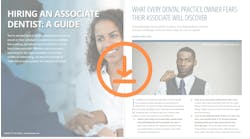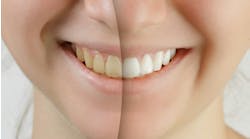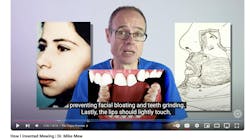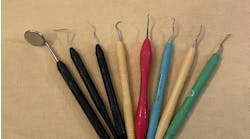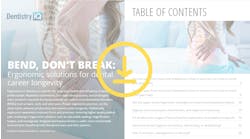NYUCD study finds sports drink consumption can cause tooth erosion
While sipping on sports drinks all day may provide an energy boost, this popular practice is also exposing people to levels of acid that can cause tooth erosion and hypersensitivity, NYU dental researchers have found.
In a recent study, the researchers found that prolonged consumption of sports drinks may be linked to a condition known as erosive tooth wear, in which acids eat away the tooth's smooth hard enamel coating and trickle into the bonelike material underneath, causing the tooth to soften and weaken. The condition affects one in 15 Americans and can result in severe tooth damage and even tooth loss if left untreated.
"This is the first time that the citric acid in sports drinks has been linked to erosive tooth wear," said Dr. Mark Wolff, Professor and Chairman of the Department of Cariology & Comprehensive Care at New York University College of Dentistry, who led the study. The findings were presented today at the annual meeting of the International Association for Dental Research in Miami.
Dr. Wolff's research team cut in half cow teeth, which were used for the study because of their close resemblance to human teeth. They immersed one half of the specimens in a sports drink, the other half in water, then compared the two halves and discovered that the one exposed to the sports drink displayed a significant amount of erosion and softening.
"Five teeth were immersed in each drink for 75 to 90 minutes to simulate the effects of sipping on sports drinks over the course of the day," Dr. Wolff said. The researchers evaluated the effects of a range of top-selling sports drinks on the cow teeth.
According to Dr. Wolff, brushing teeth immediately after consuming a sports drink can compound the problem of tooth erosion, because softened enamel is very susceptible to the abrasive properties of toothpaste.
"To prevent tooth erosion, consume sports drinks in moderation, and wait at least 30 minutes before brushing your teeth, to allow softened enamel to re-harden," Dr. Wolff advised. "If you frequently consume sports drinks, ask your dentist if you should use an acid-neutralizing remineralizing toothpaste to help re-harden soft enamel."
Dr. Wolff's coinvestigators on the study were Mr. Michael Rice, a student at the University of the Pacific Dugoni School of Dentistry in San Francisco; Mr. Glenn Canares, a student at the NYU College of Dentistry; and Dr. Mitchell S. Pines, a Clinical Professor of Biomaterials & Biomimetics at the NYU College of Dentistry.
About New York University College of Dentistry Founded in 1865, New York University College of Dentistry (NYUCD) is the third oldest and the largest dental school in the US, educating more than 8 percent of all dentists. NYUCD has a significant global reach and provides a level of national and international diversity among its students that is unmatched by any other dental school.
